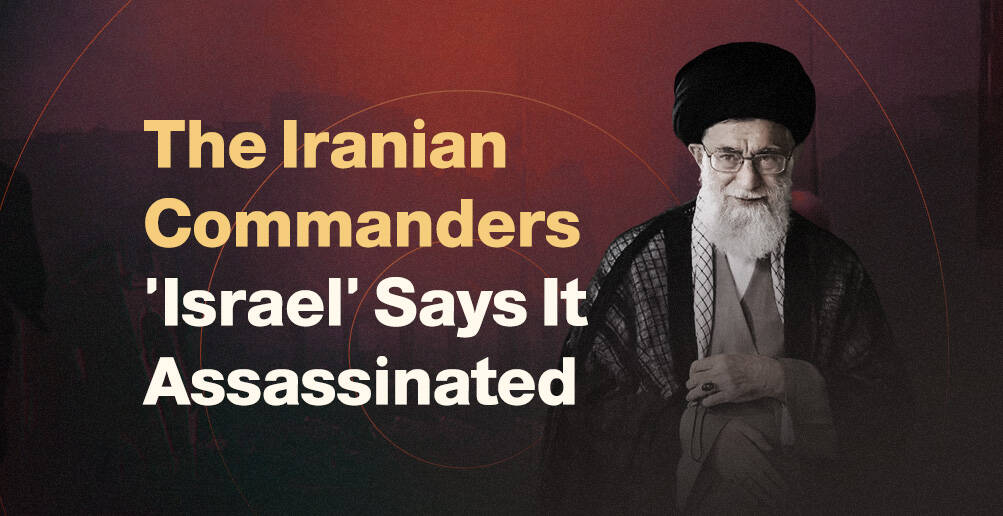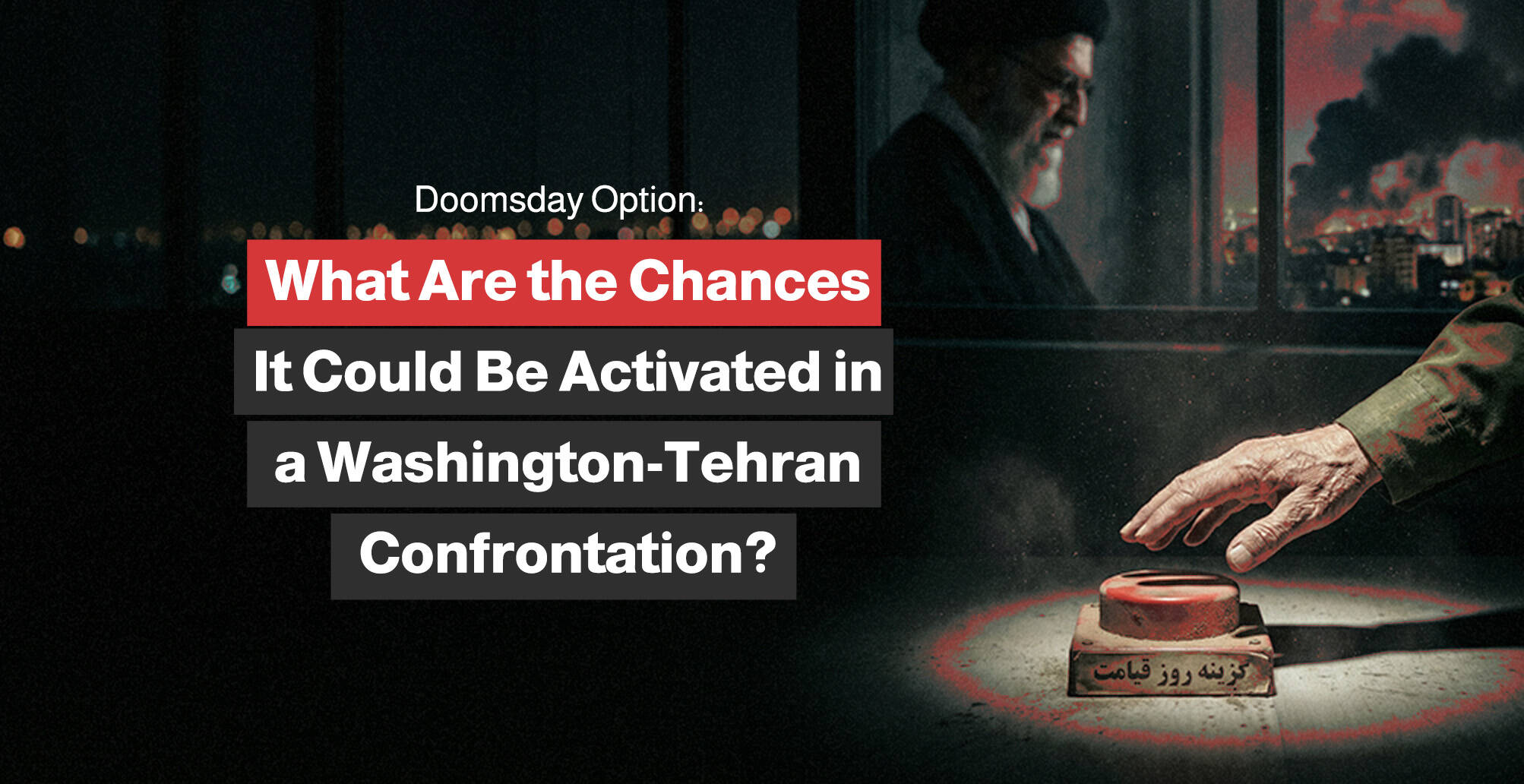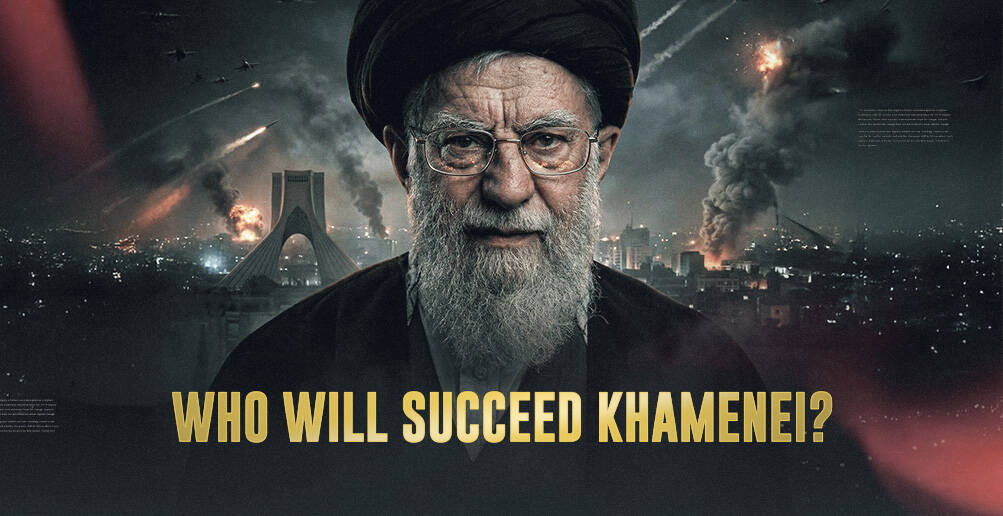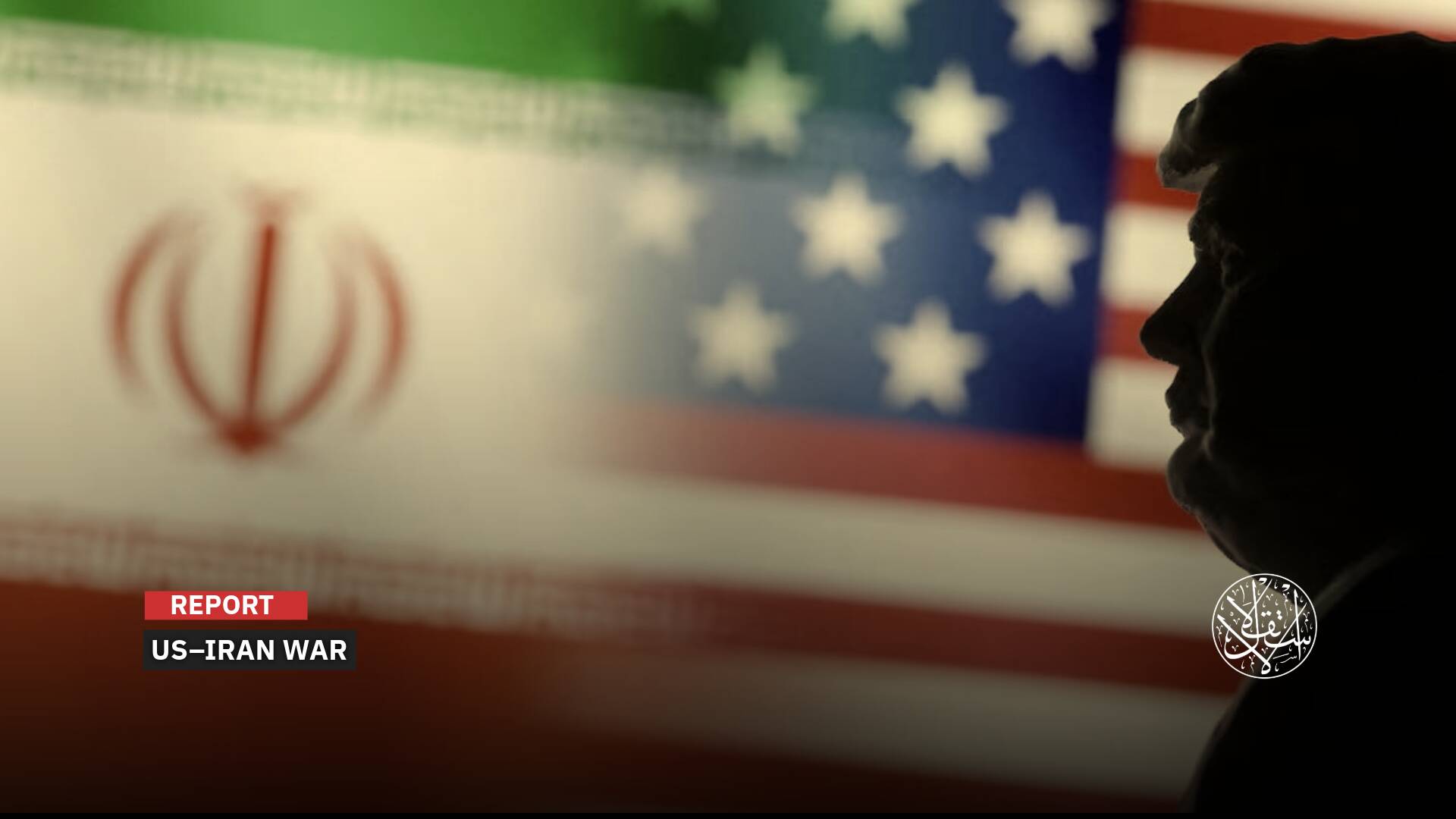Rising U.S.-Israeli Pressure: Could Lebanon Become the Next Flashpoint?
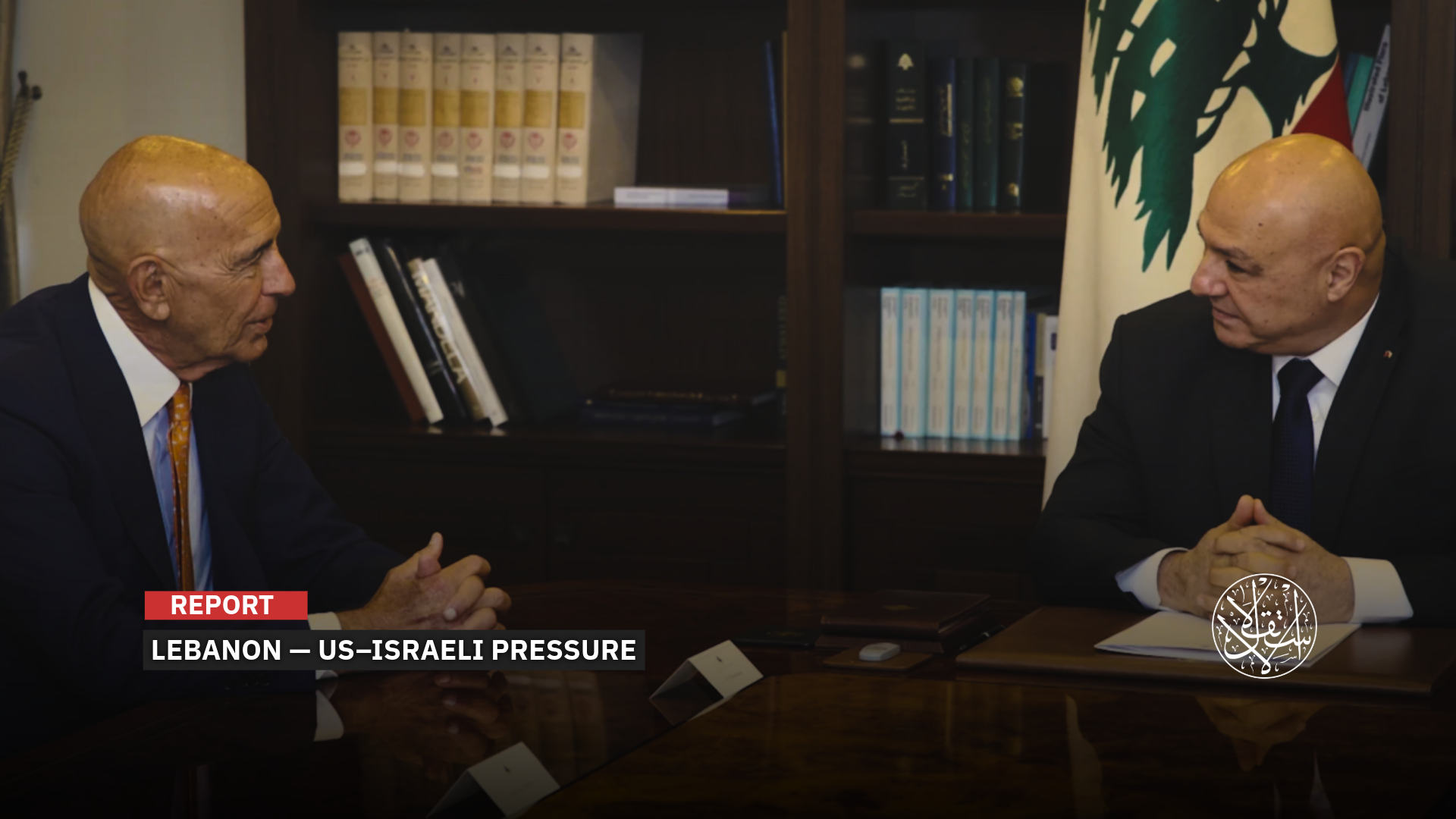
“All logistical excuses for delays no longer carry any weight.”
Lebanon faces a delicate balancing act, navigating internal political rivalries amid growing U.S. and Israeli Occupation pressure to secure concessions and avoid the specter of war.
In recent weeks, these pressures have escalated, with “Israel” taking a harder line and U.S. envoy Thomas Barrack publicly describing Lebanon as a “failed state.”
‘Playing with Fire’
Israeli War Minister Yisrael Katz warned that the Israeli military could intensify its attacks against Lebanon’s Hezbollah.
“Hezbollah is playing with fire, and the president of Lebanon is dragging his feet,” Katz said in a statement. “The Lebanese government’s commitment to disarm Hezbollah and remove it from southern Lebanon must be implemented. Maximum enforcement will continue and even intensify. We will not allow any threat to the residents of the north.”
As the U.S. deadline for Hezbollah’s disarmament approaches at the end of 2025, the group continues to resist international pressure, declaring a heightened state of alert in preparation for any developments, including a possible return to war.
Observers have described the Lebanese government’s August 2025 decision to disarm Hezbollah by the end of the year, along with a five-stage military plan for disarmament, as largely impractical.
Israeli Occupation strikes have escalated in Lebanese areas, killing civilians and Hezbollah fighters, including three Hezbollah leaders in October 2025: Ali Hussein al-Mousawi, described by the Israeli army as a “weapons trafficker in Hezbollah”; Abed Mahmoud al-Sayed, Hezbollah’s local representative of Ras Biyyada, southern Lebanon; and Zayn al-Abidin Hussein Fatouni, a commander in the anti-tank unit of Radwan Force battalion of Hezbollah.
On 2 November 2025, the Israeli Occupation army also announced the killing of four individuals it identified as members of Hezbollah’s elite force.
Tensions escalated further after an Israeli military force entered the border town of Blida in the early hours of 30 October 2025, killing an employee who was staying inside the municipal building.
Immediately following the incident, Lebanese President Joseph Aoun called on the army to “repel” any Israeli incursions “into the liberated southern territories,” referring to areas from which Israeli forces withdrew after the last war on Lebanon.
This came less than two weeks after Aoun had called for negotiations with the Israeli Occupation in mid-October 2025, following U.S. mediation by President Donald Trump that helped achieve a ceasefire in Gaza. However, Aoun later accused “Israel” of responding to the calls with further “attacks.”
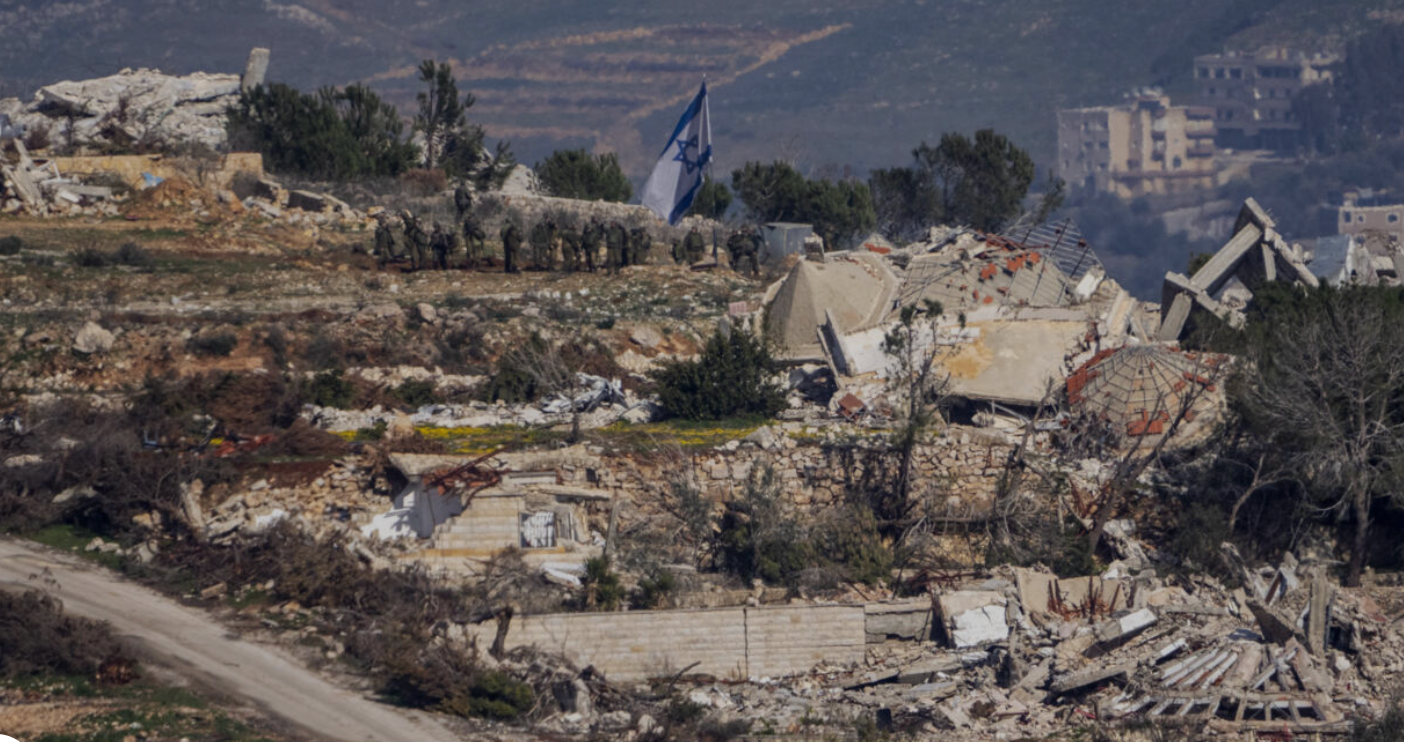
U.S. Pressure on Lebanon
Lebanon has not yet entered negotiations with “Israel,” while Tel Aviv insists that the alternative is war, accusing Hezbollah of rebuilding its military capabilities after they were weakened in “the last confrontation.”
The United States, through its envoy Thomas Barrack, reiterated on 2 November 2025, at the IISS Manama Dialogue, its call for Lebanon to hold direct negotiations with “Israel.”
“The conversation needs to be with Israel. It just needs to be with Israel. Israel is ready,” Barrack told reporters.
“March to that door, to Israel, and have a conversation; it can't hurt.”
“The path is very clear that it needs to be to Jerusalem or Tel Aviv for a conversation along with Syria. Syria is showing the way,” he added during a panel in Manama.
The United States has been pushing for Lebanon to follow in the footsteps of neighboring Syria, which is seeking a security agreement with “Israel.”
The Israeli Occupation previously launched an aggression on Lebanon on 8 October 2023, escalating into a full-scale war on 23 September 2024, which resulted in over 4,000 deaths and around 17,000 injuries.
On 27 November 2024, a ceasefire agreement between Hezbollah and “Israel” came into effect, yet Tel Aviv violated it more than 3,000 times, causing 262 deaths and 563 injuries, according to official data.
Challenging the agreement, the Israeli army conducted a partial withdrawal from southern Lebanon, but it still occupies five hills captured during the last war.
It is clear that the international pressure on Lebanon is largely American-led; other parties, such as the British, French, or European actors, do not carry the same weight in this issue.
According to observers, U.S. pressure through Thomas Barrack’s statements is a reaction to a growing domestic consensus among Lebanese political leaders on how to handle negotiations with “Israel.”
Everyone agrees that any dialogue or negotiation should occur through official channels, not under external dictates or pressure, especially as Washington pushes for direct talks.
Observers stress that Lebanon is trying to safeguard its national interests and strategic choices without outside interference, even as it faces mounting Israeli attacks and rising tensions on the ground.
Lebanon faces increasing international pressure regarding the control of arms and the government’s compliance with related international agreements.
Messages to Lebanon stress the need to ensure that all weapons are under state control and to stop any armed activity outside government authority. Observers warn that failing to comply could trigger future Israeli aggression.
“Rising military and political pressure on Lebanon shows that Israeli threats leave no room for jokes or half-measures,” Lebanese political analyst Asaad Bishara told Al-Estiklal.
“Indicators suggest that southern Lebanon is on the verge of a major test, while international circles are monitoring efforts to ‘cleanse’ the south of any armed presence north of the Litani River, a task that is expected to be completed before the end of the year.”
“All logistical excuses for delays no longer carry any weight. Lebanon must implement the decision, even if it means expanding its scope or making execution more difficult, as international pressure continues to mount,” Bishara added.
“The U.S. envoy’s visits to Beirut are no longer exploratory meetings; they are linked to decisive decisions made in Washington and Tel Aviv, implemented on the ground if Lebanon continues to delay or procrastinate.”
“What awaits Lebanon in the coming weeks goes beyond small calculations. It requires a realistic national decision that balances sovereignty and responsibility before Israeli realities impose themselves by force,” the analyst concluded.
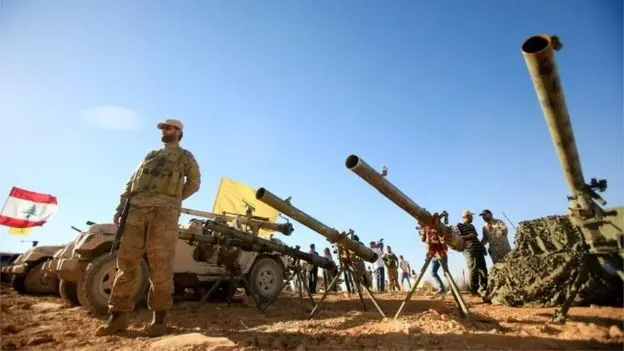
The Best Option
U.S. envoy Thomas Barrack said that “Israel” bombs southern Lebanon daily because Hezbollah’s arsenal remains intact, noting that thousands of rockets in southern Lebanon still threaten “Israel.”
In a speech during the Manama Dialogue on 2 November 2025, Barrack described Lebanon as a “failed state” but stressed that Lebanese leadership remains resilient and must move faster to place Hezbollah’s weapons under state control.
Barrack added that Lebanon lacks an effective central bank, the banking system has collapsed, billions of dollars are missing, and government debt has reached $130 billion, yet the authorities refuse to assess the financial gap or engage with the World Bank.
He pointed to the absence of public electricity, replaced by private generators, as well as shortages in water and education, asking, “So what’s the state? The state is Hezbollah?”
The U.S. envoy’s criticisms send a clear message: despite American military aid, the Lebanese army is unable to meet the core requirement of disarming Hezbollah and bringing all weapons under the exclusive authority of the state.
The U.S. position holds that fully and effectively disarming Hezbollah is the only guarantee of security along Lebanon’s borders and reduces the risk of future wars.
Lebanese writer and editor-in-chief of Janoubia, Ali al-Amin, noted that “Israel” does not see Hezbollah’s weapons as a direct threat but seeks to prevent the group from rebuilding its military capabilities, which Hezbollah continues to pursue with Iranian support.
“The Lebanese state must demonstrate its sovereignty and its ability to manage security, development, and social issues,” he told Janoubia, warning that any gap between official state statements and Hezbollah’s actions undermines credibility before the international community.
Assessing the military situation, al-Amin said that “Hezbollah’s arsenal has lost its real deterrent value,” pointing out that its continued existence gives Israel a pretext for further aggression.
“The best option for Lebanon today is to adhere to international agreements and leverage U.S. and international support to avoid potential fallout.”
Sources
- US envoy calls Lebanon a ‘failed state’ as Syria expected to join anti-IS coalition
- Lebanon key to Trump plan for turnaround in Middle East
- Israel threatens to step up attacks against Hezbollah in Lebanon
- US envoy Tom Barrack urges direct Lebanon-Israel negotiations
- US envoy: Lebanon a ‘failed state,’ is unlikely to be able to forcibly disarm Hezbollah
- Ali al-Amin: Lebanon’s Best Option Is to Follow International Agreements; Hezbollah’s Weapons Give Israel a Pretext [Arabic]
- White House Source: Will U.S. Weapons Be Used Against Israeli Incursions? [Arabic]








